The Commodore Amiga is 30 years old today but while journalists line up to rain plaudits down on this iconic machine the most important part of the story of the Amiga — and all the other classic ‘80s and ‘90s home computer systems — has been lost. We’re talking of course of the role of Birmingham in some of the most important computer games, ever. Read through any top 10 list of computer games during the 8 and 16 bit eras and you’ll find Brum’s fingerprints all over it. Are we talking about hot development houses, based out of tastefully restored Digbeth workshops? No. Are we talking about corporate giants, with satellite offices in a prestigious business park in Bickenhill? No. And anyway, being that near to the airport means they’re in Solihull.
No. We’re talking about the shit tonne of licensing and admin running out of Perry Barr. Yep, Perry Barr is where all your electric dreams were builded.
US Gold were based in Holford Industrial Estate in Perry Barr, former home to the Kynoch Works, and they were responsible for bringing games from American developers such as Capcom into your UK bedroom. These were the unsung heroes who checked all the orders, who filed the paperwork, and possibly moved inventory around, we don’t know. Their work put the power in your hands — the power to save princesses, drive cars, or fight your way to the top. Here’s our rundown on the best computer game admin done by Birmingham temps:
Out Run

Licensing games from America, that was a great idea. But the big platform in the UK was ZX Spectrum, unknown in the states. Our Brummie heroes Geoff and Anne Brown were faced with the problem of converting the US games they were licensing to UK formats. Luckily there were small development houses all over England, just not many in B-Town. We believe the home computer conversions of this cool-car driving Japanese original may have been done by Probe (from Croydon), but we know it was the guys in Perry Barr who put the deals together. We like to think that it wasn’t just the money that attracted them to this release but the idea of it being a bit like getting into work on the 11.
Streetfighter 2
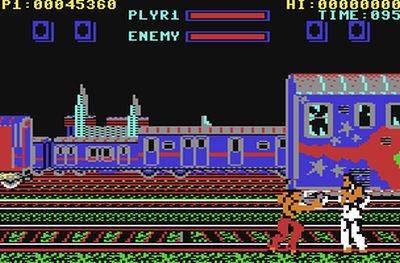
In the Streetfighter cast you’ll find a motley crew of brawlers who you might think were sketched from locals in the Crown and Cushion. They weren’t, the rights were bought from the Capcom original and the coding was done by Tiertex Design Studios in Manchester who were probably able to do some character studies based on the Happy Mondays. Sadly the freaky-dancin death move was hidden behind a cheat code.
Before the global success of the game a brainstorm in a Perry Barr conference room did end with a flip-chart paper containing the idea that it should be re-skinned and named after a local pub. It was nixed by a Brummie in a polyester suit, who feared that pubs might become even more violent if computer games were played in them. Seeing as that pub is called the Yew Tree, history vindicates the person who wrote up the notes.
Monkey Island 2: Le Chuck’s Revenge
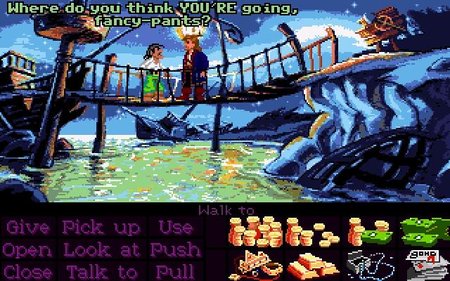
Sequels, they don’t often improve on the original. And piracy was a big problem. But efficient distribution in European markets can make or break a game in those markets. The idea, scripting, innovation and animation were American, even the contracts may have been signed in California: but at least one carbon copy was kept in a filing cabinet in B42.
1943: The Battle of Midway

US Gold’s plasticy 80s industrial park unit was on the site of the old IMI works, where bullets and guns were churned out in 1943 and earlier for the war effort — although few would have made it to the Pacific theatre of World War II, off the coast of the Midway Atoll. It was there that the Americans fought the Japanese, won, and then sat back and let the Japanese make coin-ops about it.
Our heroes at US Gold also played the long game, doing nothing, letting Go! software produce and release a home computer version of the Capcom arcade game — and then when the dust had settled they bought up the rights and released it on a budget compilation. Some of that purchasing negotiation was no-doubt done via an 021 number.
World Cup Carnival

Birmingham’s US Gold bought the rights to produce the official computer game of the Mexico 86 World Cup, and decided to developed the game in-house – probably not in Birmingham though – but they just couldn’t make it happen. They were stuffed, so the office staff put in a late one, luckily the gaffer had bought one of those big tins of coffee from Bookers. And in a wave of inspiration they bought Artic’s World Cup Football from a couple of years earlier and outsourced the adding of a few tweaks. They got it out just in time, to a famously pissed off public and chuckling press. But it had that chili pepper mascot on it and that’s all that mattered to FIFA.
It’s exciting to think that some of those frantic phone calls would have been made right next to the river Tame — ole!
Summer Games II
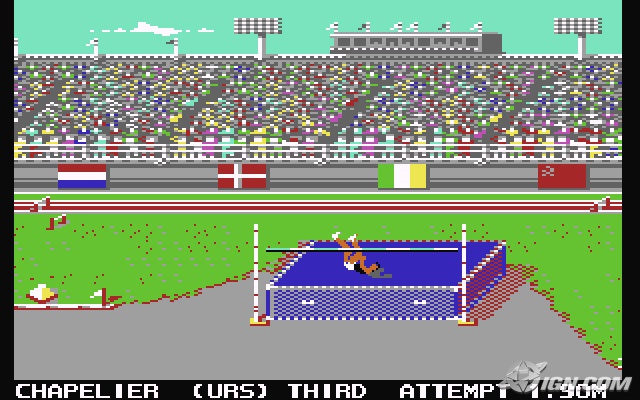
The first joystick waggling game to really hit it big in our country was Daley Thompson’s Decathlon. On the Spectrum at least our hero was drawn rather paler than Twitter would have allowed certainly: but that all happened up the M6 in Manchester. In Birmingham we waited and produced the egalitarian ‘Games’ series: Summer and Winter. Faster, higher, stronger; forward!
The US Gold ideas team when down to Perry Barr dogs and thought ‘We know, a sports game with a wider variety of events in will be ace, let’s make it. No dogs though’. No, of course they didn’t; they bought the game from an American company called Epyx and badged it up.
But the final sign-off on the placement of the circular US Gold stamp, that was given right here in the big heart of England.
Sabre Wulf
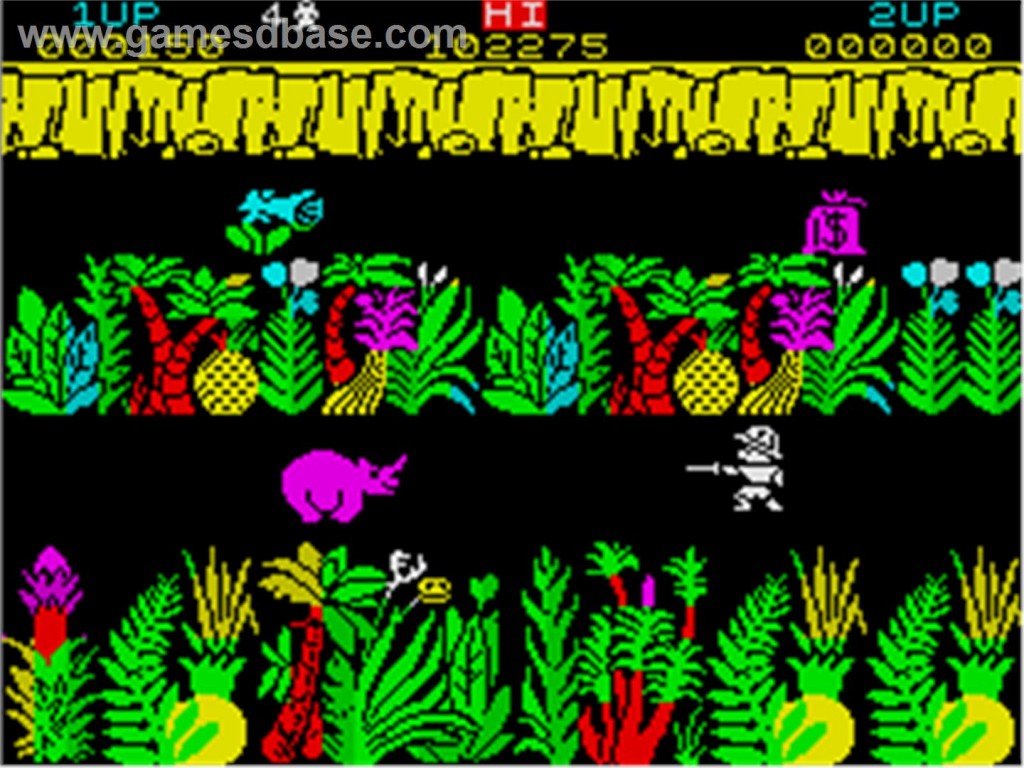
Ultimate: Play the Game were one of Britain’s foremost game companies. They invented Jetpac, and isometric 3D games and then evolved into Rare and blew the Nintendo world apart with their Donkey Kong stylings.
Sabre Wulf, the story of a knife wielding maniac, may well have been inspired by a trip to One Stop: but if it was it must have been on a day when the team from Ulitmate came up from Ashby-de-la-Zouch, in Leicestershire, for a meeting. Because they certainly didn’t write a line of code in Birmingham. They were best on the Spectrum, and like Dustin Hoffman, they ended their Ultimate reign slowly on the driveway. The Holford Drive-way.
In 1985 the Stamper brothers sold the Ultimate back catalogue and name to US Gold. OK no work was done on them in Birmingham nor did US Gold even release the games, but a legal power of ownership was held in a registered office just a stone’s throw from the Barn Social club.
Tomb Raider
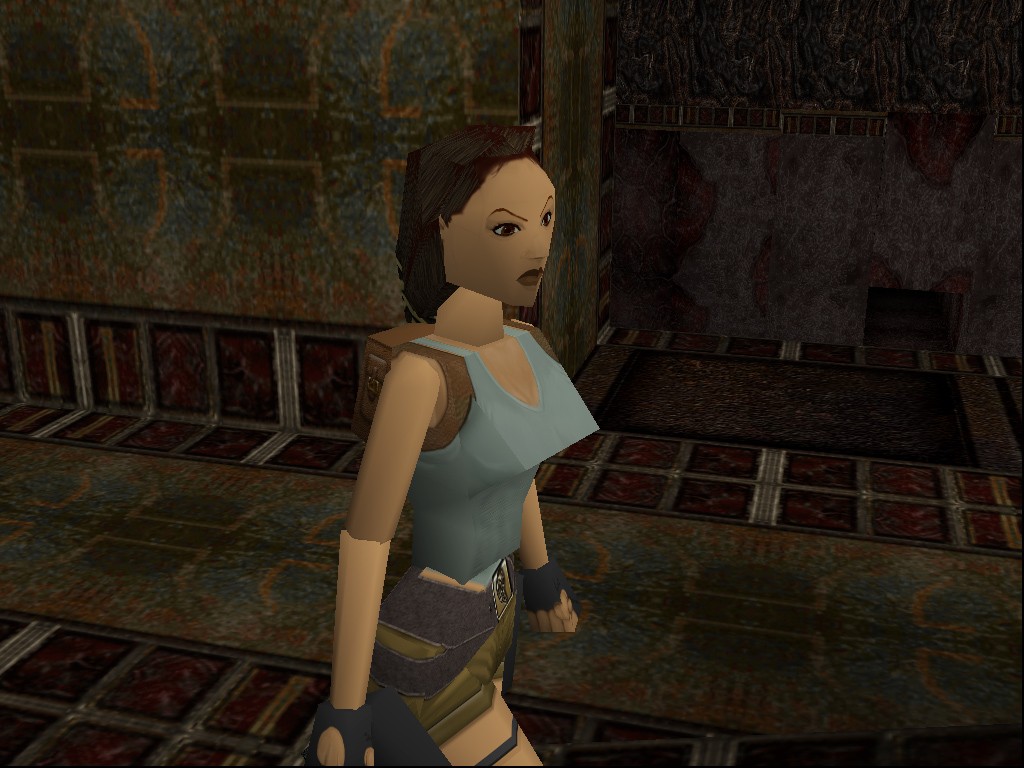
Lara Croft was based on a girl from Essex, and inflated from an all action explorer to a lad-mag wank fantasy. And US Gold merged and expanded to be part of CentreGold, that included the makers of the Tomb Raider franchise. The era of Brummie success was coming to a close though, and the company released its last game just a few months before Tomb Raider hit.
All creative and development was done by Core Design in Derby, it was released by new owners Eidos, but there will have been at least one Powerpoint presentation about the projected sales figures right here in Brum.
